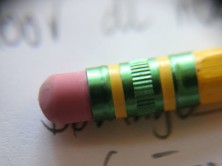
(Credit : BBC , screenshot)
The BBC was called out by its own editorial standards committee for “misleading” viewers by faking a scene in a nature documentary.
The BBC1 documentary The Great Bear Stakeout included a “re-enactment” where a bear guide faked seeing a bear and her cub go in the water. The scene in question showed a “mother bear leading her two cubs into water to catch fish and one of the cubs disappearing into the waves.” It was faked by inserting a bear guide watching when he wasn’t really there.
According to the BBC Trust report, the program aired in April and the BBC Executive, which is in charge of “the direction of BBC editorial and creative output,” alerted the BBC’s Editorial Standards Committee, who then investigated the fakery. The report appeared to be detailed and thorough.
The committee ruled that the program violated the BBC’s accuracy and production techniques policies.
The deception was “not acceptable” because “the public had been misled.” According to the committee, the decision to fake the footage was “a failure of editorial judgment.” The trust did clear Gavin Henderson, the executive producer, from wrongdoing because it said that he was unaware of the footage fakery.
According to the report, the BBC learned of the fakery when the bear guide featured in the documentary was being pre-interviewed for a radio segment. Henderson found out and told superiors. “It was only when a planned radio interview proposed to feature the cub-drowning sequence that the bear guide flagged up the fact that he had not actually been present at the time,” the report read.
The BBC Trust noted that there were “no viewer complaints” over the documentary.
The committee warned that just this one incident of fakery could create a negative effect on the way the public views all of BBC’s natural history programming. It stated:
“The [Editorial Standards Committee] was concerned that enactments of this nature could undermine the trust of the public in the BBC’s natural history programmes and even risked casting doubt on the accuracy of the natural history depicted in the BBC’s programmes. This would be an extremely unfortunate outcome which could damage a world class brand.”
Making matters worse, the BBC said the type of programming was especially important to the BBC. “The BBC’s national history programming is one of the jewels in the crown of British broadcasting. It is renowned world-wide.”
The BBC trust listed several direct actions taken because of the fakery that included:
- Mandatory training for “all Natural History unit staff”
- A customized “training module for all Natural History Unit staff, including freelancers, editors and camera operators highlighting the importance of relating editorial guidelines on factual content to the world of natural history”
- Monthly reviews of “editorial issues and concerns”
- A new “‘Gold Standard’ code of practice setting out best practice”
- The edited version of the program was removed from its website.
- A correction on its website
The BBC also published a correction on its website admitting the video manipulation. The Executive Producer, Gavin Henderson, also apologized.
The correction reads in full:
“Following the transmission of Great Bear Stakeout it has come to light that the first episode contained a scene which was misleading and so we have since taken steps to correct that scene. The scene in question is one where a mother bear Parsnip takes her two cubs Pushki and Wren into the ocean and Wren is presumed drowned; the bear guide is seen watching the events unfold and commenting on them.
“We discovered only after transmission that at the time the main film crew captured the wildlife footage for this sequence the guide was elsewhere and that his contribution to the sequence was picked up at a later time. While the wildlife sequence is accurate and faithfully portrays the real events that the crew witnessed, the inclusion of the bear guide is misleading and having identified this, we have now re-edited the sequence to remove the bear guide.
“All further BBC repeats will be of this updated version. As the Executive Producer, please accept my apologies for this mistake. The Natural History Unit is taking immediate steps to address the issues raised and to prevent similar issues occurring by providing additional training across the entire Unit.”
Hat Tip: The Guardian






